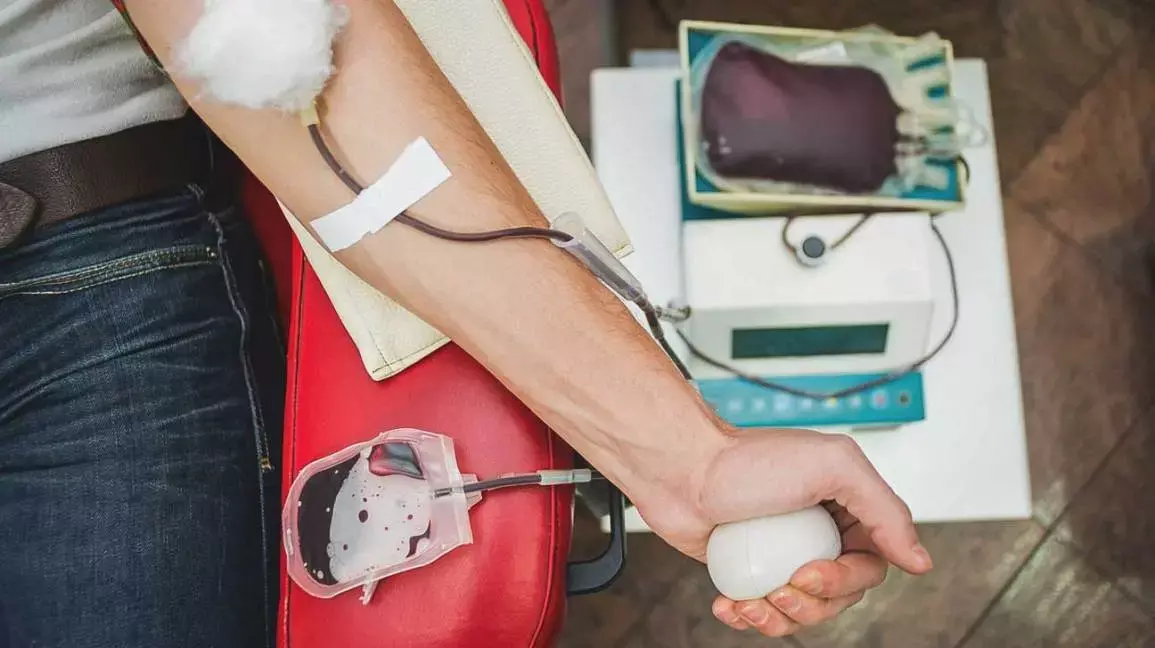- Home
- Medical news & Guidelines
- Anesthesiology
- Cardiology and CTVS
- Critical Care
- Dentistry
- Dermatology
- Diabetes and Endocrinology
- ENT
- Gastroenterology
- Medicine
- Nephrology
- Neurology
- Obstretics-Gynaecology
- Oncology
- Ophthalmology
- Orthopaedics
- Pediatrics-Neonatology
- Psychiatry
- Pulmonology
- Radiology
- Surgery
- Urology
- Laboratory Medicine
- Diet
- Nursing
- Paramedical
- Physiotherapy
- Health news
- Fact Check
- Bone Health Fact Check
- Brain Health Fact Check
- Cancer Related Fact Check
- Child Care Fact Check
- Dental and oral health fact check
- Diabetes and metabolic health fact check
- Diet and Nutrition Fact Check
- Eye and ENT Care Fact Check
- Fitness fact check
- Gut health fact check
- Heart health fact check
- Kidney health fact check
- Medical education fact check
- Men's health fact check
- Respiratory fact check
- Skin and hair care fact check
- Vaccine and Immunization fact check
- Women's health fact check
- AYUSH
- State News
- Andaman and Nicobar Islands
- Andhra Pradesh
- Arunachal Pradesh
- Assam
- Bihar
- Chandigarh
- Chattisgarh
- Dadra and Nagar Haveli
- Daman and Diu
- Delhi
- Goa
- Gujarat
- Haryana
- Himachal Pradesh
- Jammu & Kashmir
- Jharkhand
- Karnataka
- Kerala
- Ladakh
- Lakshadweep
- Madhya Pradesh
- Maharashtra
- Manipur
- Meghalaya
- Mizoram
- Nagaland
- Odisha
- Puducherry
- Punjab
- Rajasthan
- Sikkim
- Tamil Nadu
- Telangana
- Tripura
- Uttar Pradesh
- Uttrakhand
- West Bengal
- Medical Education
- Industry
Prothrombin complex concentrates effective option to plasma in post-CPB-mediated coagulopathy: JAMA

Minnesota: A new study found that in patients undergoing cardiac surgery, prothrombin complex concentrate (PCC) are safe with improved prothrombin time (PT)/ international normalized ratio (INR) correction, intraoperative RBC transfusions, and better avoidance of allogeneic transfusion than in patients receiving plasma. The findings of this study were published in the Journal of American Medical Association - Surgery.
The most prevalent reasons for blood product transfusion in surgical operations are post-cardiopulmonary bypass (CPB) coagulopathy and hemorrhage. Current retrospective data implies that patients receiving prothrombin complex concentrate instead of plasma following heart surgery have decreased transfusion rates and blood loss. As a result, the purpose of this study was to examine the perioperative bleeding and transfusion outcomes in patients having cardiac surgery who develop microvascular hemorrhage and are treated with either PCC or plasma.
A single-institution, prospective, randomized clinical trial was conducted by Mark M. Smith and colleagues at a busy cardiac surgery facility. Patients had to be at least 18 years old and undergoing heart surgery with CPB. Patients having difficult cardiac surgery procedures were given priority enrolment. During the research period, 756 patients were solicited for participation, and 553 were randomly assigned. 100 of the 553 randomized patients satisfied the study intervention requirements.
Patients with severe microvascular bleeding, a prothrombin time of more than 16.6 seconds, and an international normalized ratio greater than 1.6 were randomly assigned to either PCC or plasma therapy. The PCC dosage was 15 IU/kg or the nearest standardized dose; the plasma dose was 10 to 15 mL/kg rounded to the next unit.
The key findings of this study were as follows:
1. The research intervention was given to 100 patients.
2. The difference in chest tube production between the plasma and PCC groups was not statistically significant.
3. Patients in the PCC arm improved more in terms of PT and INR after therapy.
4. After therapy, fewer patients in the PCC group required intraoperative RBC transfusion; overall intraoperative transfusion rates did not differ substantially across groups.
5. From the perioperative phase until the end of postoperative day 1, seven (13.7%) of 51 patients receiving PCCs avoided allogeneic transfusion, but none of those receiving plasma did.
6. Postoperative hemorrhage, transfusions, and adverse effects did not differ significantly.
In conclusion, the findings of this study suggest that PCCs have a similar efficacy and safety profile to plasma, with a lower rate of posttreatment intraoperative RBC transfusion, improved PT/INR correction, and a higher incidence of allogeneic transfusion avoidance in patients receiving PCCs in this clinical context.
Reference:
Smith MM, Schroeder DR, Nelson JA, et al. Prothrombin Complex Concentrate vs Plasma for Post–Cardiopulmonary Bypass Coagulopathy and Bleeding: A Randomized Clinical Trial. JAMA Surg. Published online June 29, 2022. doi:10.1001/jamasurg.2022.2235
Neuroscience Masters graduate
Jacinthlyn Sylvia, a Neuroscience Master's graduate from Chennai has worked extensively in deciphering the neurobiology of cognition and motor control in aging. She also has spread-out exposure to Neurosurgery from her Bachelor’s. She is currently involved in active Neuro-Oncology research. She is an upcoming neuroscientist with a fiery passion for writing. Her news cover at Medical Dialogues feature recent discoveries and updates from the healthcare and biomedical research fields. She can be reached at editorial@medicaldialogues.in
Dr Kamal Kant Kohli-MBBS, DTCD- a chest specialist with more than 30 years of practice and a flair for writing clinical articles, Dr Kamal Kant Kohli joined Medical Dialogues as a Chief Editor of Medical News. Besides writing articles, as an editor, he proofreads and verifies all the medical content published on Medical Dialogues including those coming from journals, studies,medical conferences,guidelines etc. Email: drkohli@medicaldialogues.in. Contact no. 011-43720751


